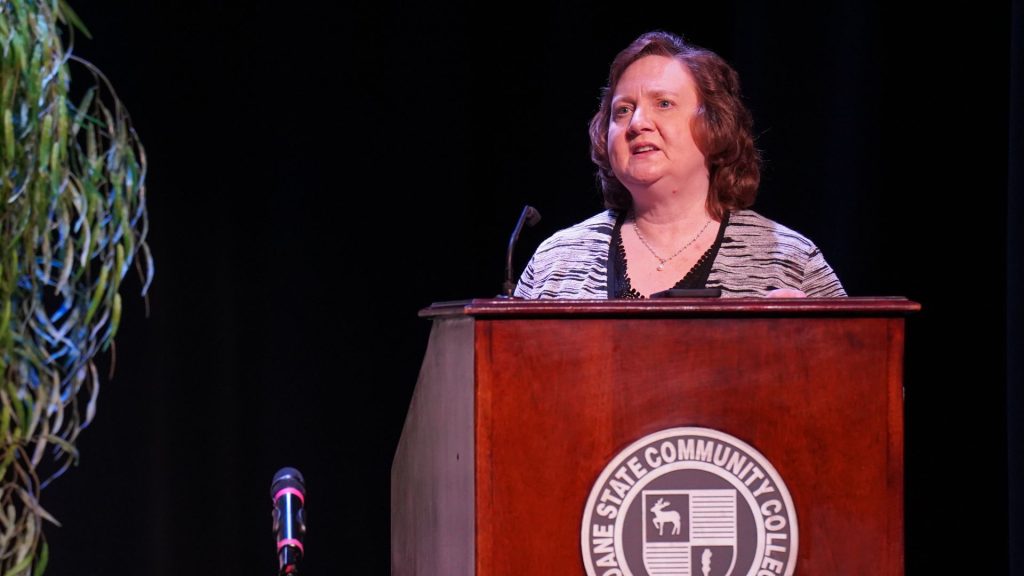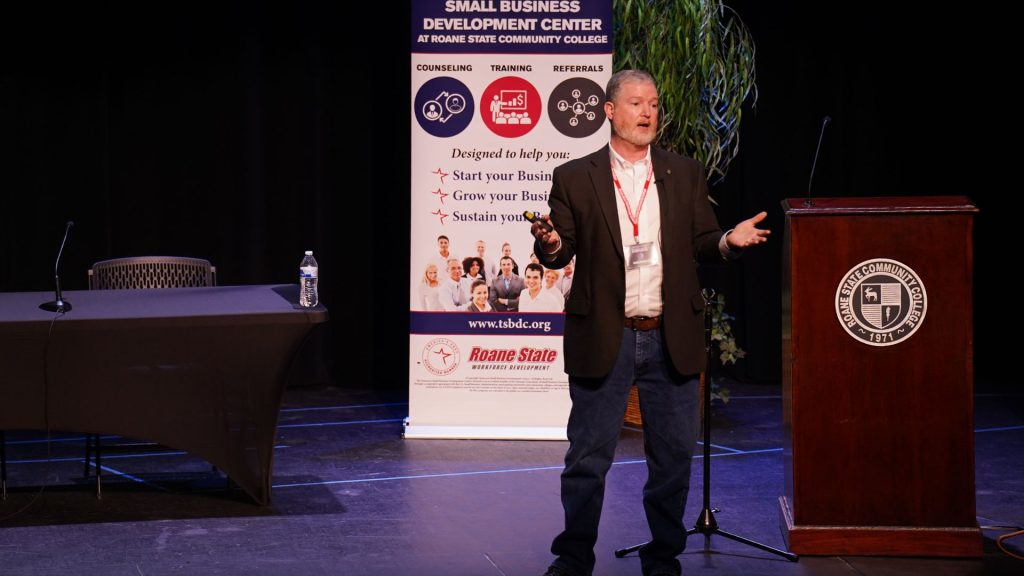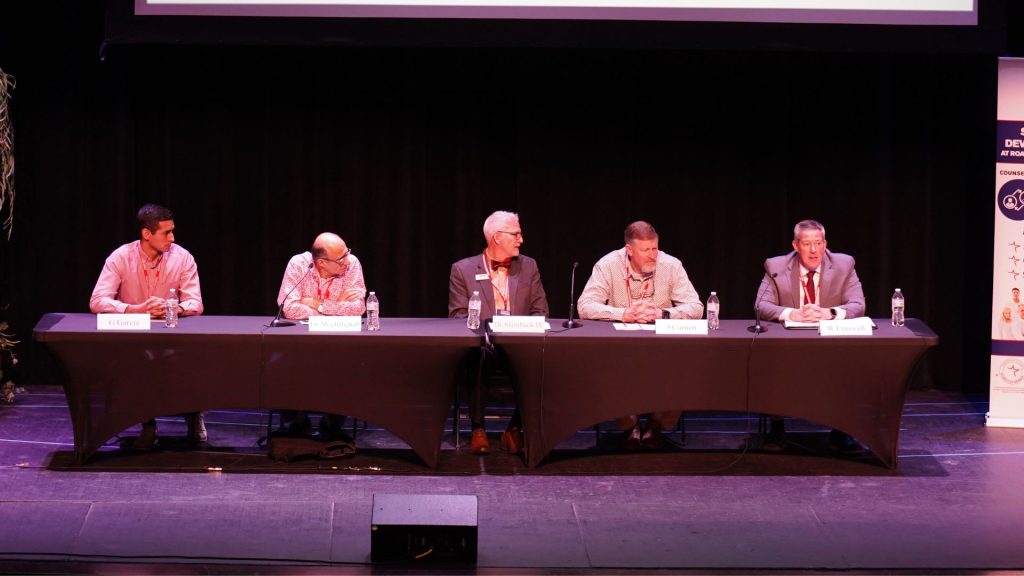
What will the East Tennessee workforce look like in 2030?
The Future of Work Symposium took place at Roane State Community College and prompted conversations about the role of artificial intelligence in the workforce of the future.
Community members, business leaders, investors, students, and start-ups filed into the Roane State Community College auditorium Thursday for the anticipated symposium about the workforce of the future. Many people expressed a continual battle to find footing in an ever-changing world of technology in business. To address those concerns, Lynne E. Parker, the Associate Vice Chancellor at the University of Tennessee, Knoxville (UTK), and Director of the Artificial Intelligence (AI) Tennessee Initiative, took the stage first.
We previously featured Parker’s research and efforts to influence national policy surrounding AI (see teknovation.biz article here). She has the experience to provide an expert opinion about the direction this technology is headed.
“Forget the idea that AI is coming, AI is already here,” she said at the start of her presentation. Parker explained AI is a tool humans can use to enhance their capabilities, versus a tool that will replace human jobs. It can complete defined, repetitive tasks; however, the technology fails when it is put in the “hot seat” to make a moral or ethical decision.
“Human ethics and morals, and our decision-making processes are something AI cannot replace,” Parker said.

Nearly every major industry in the state of Tennessee has an opportunity to harness the power and improved efficiency of AI. For example, AI can be used in the realm of forestry, agriculture, manufacturing, logistics, healthcare, energy, information technology, and hospitality. Now, it’s just a matter of putting the technology to good use and training people how to use it.
“We need to make sure that everyone becomes AI literate. This is a huge initiative for us. We want kids to understand and learn about AI early, we want that education to continue into college, and we want to create programs where adults can come back and learn AI programs,” she said.
One of the ways UTK is capitalizing on the increased demand for AI skills in the workforce is by launching the College of Emerging and Collaborative Studies (CECS). The college is launching a couple of new degree programs for students, and even opened an AI 101 course, to introduce students to the world of machine learning.
Upon the completion of Parker’s presentation, the room was stunned. Some people were excited about the opportunity, and others were fearful about what this meant for emerging and established businesses.
One man in the audience asked how small business owners could start looking into how AI could augment some of their mundane day-to-day processes. Parker’s answer was “one step at a time.”
Participants broke out into group sessions, in part to discuss how AI could impact the future of their respective industries. The breakouts also featured discussions with key experts on several topics: Human resources, legal issues of intellectual property, cybersecurity on a budget, and even accessing capital, which was hosted by Eric Dobson, who helped launch Community Equity Partners in November 2023 ( see teknovation.biz article here).

So, what will the workforce look like in 2030?
It’s not a black-and-white answer, it’s more gray. One thing is for certain, Roane State is committed to meeting the need where it’s at. Several esteemed faculty at the college expressed a desire to make their two-year degree programs more hands-on.
For example, Dr. Joseph Stainback IV, the Director of the Nuclear Technology Program, said he has his sights set high on what technical degrees of the future could look like.
“We are wanting to scale up these two-year degree programs for technicians and engineers at Roane State so they have the knowledge and skills to excel the first day on the job. We want them to have real-world, practical experience before graduation,” he said.
Dr. George Meghabghab, the Director of Cyber Defense and Programming Concentrations (CITC) degree said he wants the same for his students. He is teaching them how to create cybersecurity attacks, so they know how to actively defend and mitigate risks.
The symposium is part of the Workforce Opportunities for Rural Communities (WORC) grant, which Roane State is administering to help provide non-need-based training for those in the workforce, those out of the workforce, or those who have been dislocated by their job.
The WORC grant-funded training is available through the Small Business and Entrepreneurship Center (SBEC) at Roane State. Applications are currently being accepted. Full scholarships are available for business owners and employees seeking training to help support their businesses. Applications can be found at roanestate.edu/sbec.
Like what you've read?
Forward to a friend!

